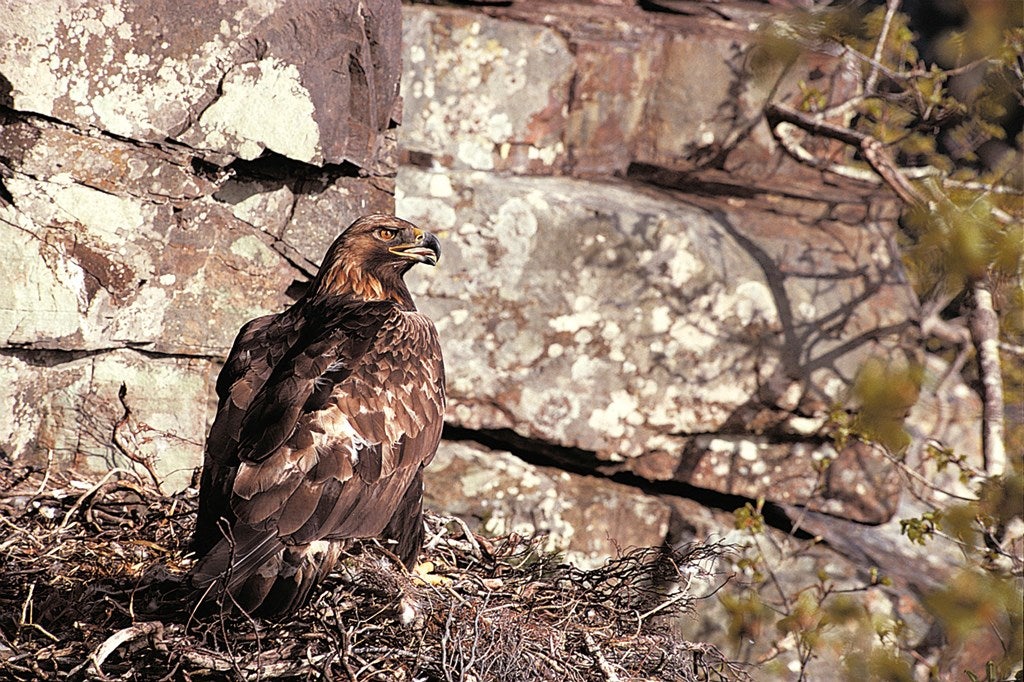England's only remaining golden eagle missing
'Eddy' had been alone since his last mate died in 2004

Your support helps us to tell the story
From reproductive rights to climate change to Big Tech, The Independent is on the ground when the story is developing. Whether it's investigating the financials of Elon Musk's pro-Trump PAC or producing our latest documentary, 'The A Word', which shines a light on the American women fighting for reproductive rights, we know how important it is to parse out the facts from the messaging.
At such a critical moment in US history, we need reporters on the ground. Your donation allows us to keep sending journalists to speak to both sides of the story.
The Independent is trusted by Americans across the entire political spectrum. And unlike many other quality news outlets, we choose not to lock Americans out of our reporting and analysis with paywalls. We believe quality journalism should be available to everyone, paid for by those who can afford it.
Your support makes all the difference.England’s last remaining golden eagle is feared dead after failing to appear in his Lake District home this spring.
The bird, known locally as Eddy, has been a resident of Haweswater nature reserve in Cumbria for nearly 15 years and would usually have been sighted by this point in the year, either nest building or attempting to attract a mate.
Staff at RSPB Haweswater raised concerns last month when Eddy had still not reappeared following the worst of the winter period. Since the bird is now between 19 and 20 years old, he is believed to have died of natural causes.
Lee Schofield, Site Manager at RSPB Haweswater, said: “When the eagle didn’t appear last month we thought there was a chance he might be hunting in a nearby valley but over the past few weeks we’ve been gradually losing hope.”
“His disappearance marks the end of an era as he has been an iconic part of the Haweswater landscape for the past 15 years. During this time, thousands of visitors have travelled from across the country hoping to catch a glimpse of him at the Riggindale Eagle Viewpoint. With him gone, the Lake District has become a bit less wild.”
Golden eagles have lived in areas of the Lake District since the 1950s, with the majority found in the open moorlands and mountains of Scotland. Between 1970 and 1996, 16 young were produced at Haweswater, while a second pair of eagles bred in the Lake District from 1975 to 1983, fledging four chicks.
Eddy the English eagle has dominated the Riggindale territory alone since the death of his mate in 2004. In the past, the RSPB has been criticised for not actively striving to find him a new mate and prevent the population of eagles in England from extinction.
Speaking to the Independent, Jeff Knot, Head of Nature and Policy at the RSPB explained that no introductions had been made since the area’s habitat was no longer in a suitable state to house the birds.
“At the moment it would be unfair to directly reintroduce any more eagles to Haweswater – even if the eagle bonded with a mate, there would be no place for them to breed successfully," he said.
Mr Knot said it was unlikely that golden eagles would take up residence again in the near future, although a conservation programme is currently underway to restore some of the Haweswater habitat, encouraging more birds of prey to settle in the area.
“At the moment the Lake District isn’t particularly attractive to golden eagles as there is a shortage of suitable habitat and food," he said.
"This is a problem to do with the way the area has been managed – it is heavily grazed with lots of grassy areas which is not the idea habitat for these birds.
“By restoring a range of natural habitats at Haweswater, we hope to see golden eagles in England again in the near future. The conservation programme should lead to an increase in several breeds of wildlife including birds and small mammals, which would provide a sustainable food source for golden eagles.”
He added that the conclusion was “very sad” but added that the eagle’s death was not confirmed as his body has not yet been found.
Join our commenting forum
Join thought-provoking conversations, follow other Independent readers and see their replies
Comments